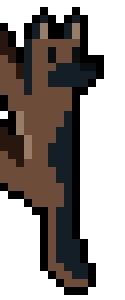
What to Expect: Everything You Need to Know About Your New Puppy
Bringing a new puppy home is an exciting adventure, but it comes with lots of preparation and learning. Here’s what you can expect—from getting your home ready to understanding your puppy’s development and care needs.
Prepare: New Puppy Checklist
Before your puppy arrives, stock up on the essentials to ensure a smooth transition, checkout this New Puppy Checklist to help you prepare.
What to Expect Bringing Your Puppy Home
Your puppy’s first days at home will be filled with curiosity—and possibly a bit of anxiety. Expect some accidents as they adjust to their new environment. Keep their world small at first, introducing them gradually to new rooms and family members. Stick to a routine for feeding, potty breaks, and bedtime to help them settle in. Be patient and gentle as your puppy learns the rules of their new home.
Dog Life Stages: Socialization and Fear Periods
Socialization Period: 8 to 12 Weeks (<16 weeks)
You should be bringing your puppy home no earlier than 8 weeks old, during the critical socialization period. This phase is essential for your puppy to develop healthy social skills and confidence. During this time, puppies are naturally curious and more accepting of new experiences, making it the perfect window to introduce them to a variety of people, animals, sights, and sounds.
Allow your puppy to safely explore their environment with positive, controlled exposures. These early experiences shape how your puppy perceives the world and can significantly reduce the risk of fearfulness and behavioral problems later in life. Always watch for signs of stress, and keep encounters brief and pleasant to build your puppy’s confidence and ensure they associate new experiences with positive outcomes.
Juvenile/Pre-Adolescent Stage (4 to 6 Months)
During this stage of life your puppy will become more independent and may start testing boundaries. It’s common to see some regression in previously learned behaviors as your puppy explores their environment and test their limits. The once-dependent companion is now eager to expand their world and assert themselves.
This is a pivotal time to reinforce your training efforts. Consistency and clear boundaries are essential—be patient, firm, and unwavering in your expectations. Remember, positive reinforcement and proactive management are far more effective than harsh corrections. Focus on rewarding good behavior, redirecting unwanted actions, and setting your puppy up for success.
Above all, approach this phase with patience and positivity. Your guidance and the experiences you provide will shape your puppy’s confidence and behavior for years to come.
Sexual Maturity (6 to 15 Months)
During the sexual maturity phase, which typically occurs between 6 and 15 months of age (timing varies by breed and size), dogs experience significant hormonal and behavioral changes as they become capable of reproduction. Here’s what you can expect:
For Female Dogs:
- The first heat cycle usually occurs between 6 and 15 months of age
- Proestrus is the first stage: Signs of heat include swelling of the vulva, increased licking of the area, more frequent urination, and a red vaginal discharge that lasts about 7–10 days.
- Estrus is the fertile period, when the female is receptive to mating typically lasting 5-10 days. The vulva may soften, and the discharge becomes less bloody, potentially watery and pinkish.
- The entire heat cycle can last 2–3 weeks, during which your dog may be fertile and could become pregnant if not supervised
- Behavioral changes may include mood swings, increased clinginess, or restlessness
- Female dogs typically go into heat twice a year
For Male Dogs:
- Male dogs may become sexually active as early as 5 months, but are most fertile after 12–15 months.
- Behavioral signs include increased marking of territory with urine, mounting behaviors, and a tendency to roam in search of females in heat.
- Testosterone levels rise, which can lead to increased aggression toward other males
Emotional Maturity and Adulthood (12 to 24 Months, varies by breed size)
Congratulations on making it through the exciting and sometimes challenging puppyhood phase! Between 12 and 24 months, your dog enters emotional maturity and adulthood, developing a more settled demeanor and their unique adult personality. Keep in mind that large and giant breeds often mature more slowly, sometimes taking up to two years to fully grow. During this stage, it’s important to transition your dog’s diet from puppy food to adult food to meet their changing nutritional needs and support their continued health and vitality.
Vaccination Schedule
A proper vaccination schedule is crucial for your puppy’s health. Puppies should receive their first shots at 6-8 weeks old, with boosters every 3-4 weeks until about 16 weeks. Core vaccines include distemper, parvovirus, and adenovirus. Your veterinarian will provide a specific schedule based on your puppy’s age and risk factors.
Welcoming a puppy into your home is a joyful experience, but it requires planning and commitment. By preparing ahead, understanding your puppy’s needs, and providing loving guidance, you’ll set the stage for a happy, healthy life together.
Training
When you bring your puppy home, remember that they are constantly learning from everything around them. The best way to guide this learning is through positive reinforcement—rewarding the behaviors you want to encourage with treats, praise, or play. This helps your puppy understand which habits are desirable and builds a strong, trusting bond. At the same time, use management techniques to prevent your puppy from practicing unwanted behaviors, such as supervising closely or using baby gates to limit access to certain areas.
Remember, consistency is key, training sessions should be short and fun, and always end on a positive note. Starting early with foundational skills along with crate and potty training will set you up for success.
Welcoming a puppy into your home is a joyful experience, but it requires planning and commitment. By preparing ahead, understanding your puppy’s needs, and providing loving guidance, you’ll set the stage for a happy, healthy life together.